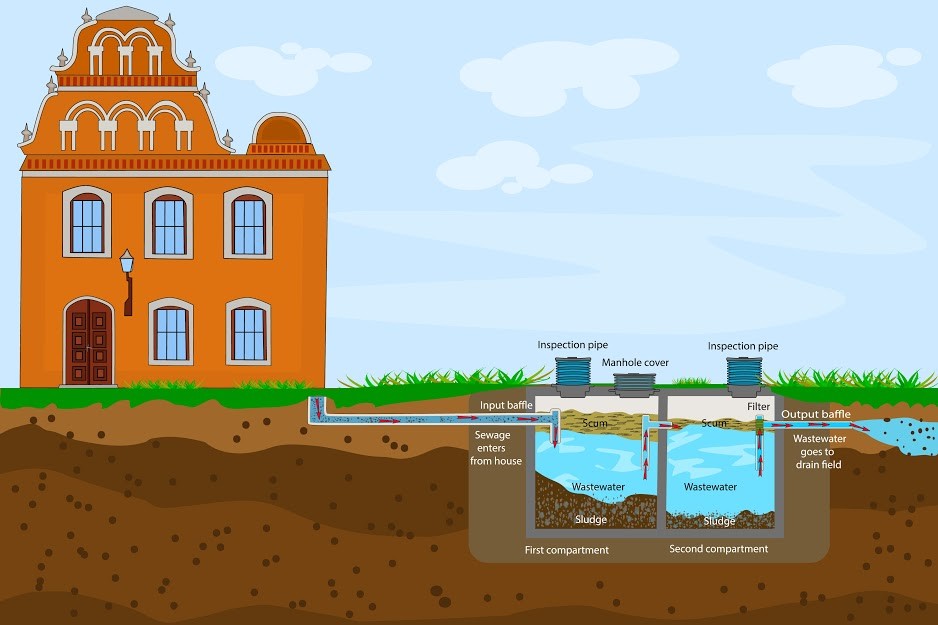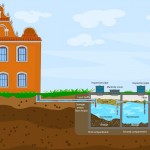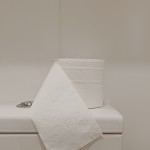What Is a Septic System and Who Needs One?
Septic systems are installed in homes and businesses that are not served by public sewer systems. They treat and dispose of wastewater that flows from the building's plumbing system. When a septic system isn't working properly, there can be dire consequences.
Signs of Septic System Failure
There are some things that may indicate that a septic system is not functioning properly. Some are more obvious than others, and some signs could also indicate other problems.
- Drains empty slowly, especially when it rains or the ground is wet
- Sewage backs up into the house
- There is a wet, smelly spot in the yard
- A wet spot appears when doing laundry
- It's necessary to pump the septic tank more than once a year
- The grass over or around the septic tank is greener than the rest of the lawn
- The area around the septic tank is wet or spongy even if it has not rained for over a week
- Noxious bacteria or large amounts of nutrients are found in nearby wells and surface water
Why Septic Systems Fail
When operated and maintained properly, septic systems should last and function for many years. The reasons most systems fail prematurely are improper installation or insufficient maintenance. Sometimes, pipe blockages from tree roots can cause issues with the septic tank.
A failing septic system can cause property damage and present a considerable health concern for the property owners as well as neighbors. It can be very expensive to replace a septic system. That's why it's important to know how to care for and maintain it.
Septic System Care and Maintenance
If the following recommendations are followed, a septic tank can remain functional and operational for many years to come.
1. Inspect and Pump Frequently
Remove sludge and scum build-up before it washes into the drainfield of the septic tank. The frequency for this task depends on the size of the tank, the number of household occupants, the volume of water used, and the amount of solid waste produced. A general guide is to pump every 3-5 years.
2. Use Water Efficiently
Too much water entering the septic system can cause failure by not allowing time for sludge to separate. This includes water from showering and bathing, doing laundry, flushing toilets, and other excessive water use.
3. Be Careful What Goes In
Basically, only biological waste and white toilet paper should go in the toilet and sink. If a garbage disposal is used, take care to only use it to grind up small food scraps. Dumping chemicals down the drain can kill good bacteria and lead to water pollution. The following items should never be put in the garbage disposal, drain or toilet:
- Grease, fats, meat scraps
- Paints, thinner, chemicals, medications
- Sanitary napkins, tampons
- Paper towels, disposable diapers
- Eggshells, coffee grounds, nutshells
- Antibacterial soaps, antibiotics
Who to Call if the Septic System Fails
If the septic system does fail, it will need to be repaired or replaced quickly to avoid further damage. That's why Simply Green Plumbing, Sewer & Rooter never charges for emergency service calls.
Simply Green will inspect the septic system and assess any problems and damages. They will then recommend a course of action to remedy the situation and get the problem fixed in a timely manner. They have the knowledge and experience to work on all types of septic systems, including septic tanks, chamber systems, conventional systems, and more.
About Simply Green
Simply Green Plumbing, Sewer & Rooter has been serving Los Gatos and surrounding cities and towns since 1988. In addition to septic service repair and installation, they offer a full range of plumbing, drain, and sewer services.











